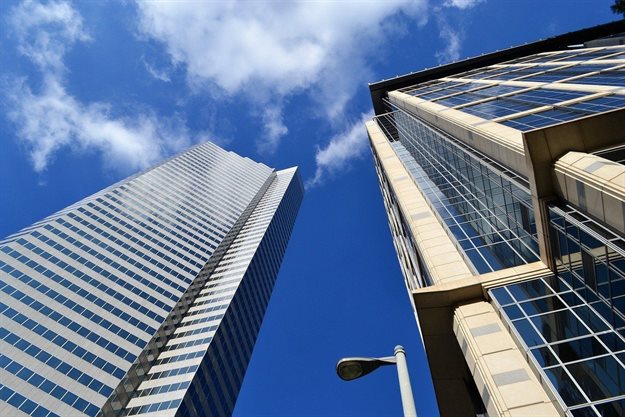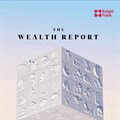The industrial property market recorded the highest activity rating to the tune of 5.44 on a scale of 1 to 10, the retail property market 4.18, while the beleaguered office property market was the weakest with a lowly 3.39 rating.
In all three markets’ cases, the activity ratings in the first quarter represented a further strengthening on the previous quarter’s readings, but in all three cases, the levels have not yet recovered to the pre-lockdown levels recorded in the first quarter of the 2020 survey.
Activity ratings reflective of recent economic data
The fact that the activity ratings are rising but not yet back to “fully recovered”, i.e., pre-lockdown levels, appears more-or-less reflective of recent economic data. Real GDP (gross domestic product) growth remained negative in the final quarter of 2020 at -4.13% year-on-year, which is significantly better than the -17.78% second quarter 2020 drop, but at the same time also not “fully” recovered.
Interest rates are very low, having declined by 300 basis points last year, but unlike the interest rate-sensitive residential property, the commercial property market typically tracks the economy’s movements more closely, and this appears to again be the case.
Greater optimism in industrial property
There are some extra factors over and above the economic cycle which may explain the differences in strength between the three major commercial property sectors. The brokers perceive all three sectors to have been heavily impacted by lockdown and the resultant deep recession. However, they implicitly explain their greater optimism in industrial property as due in part to its greater affordability compared to the other two property sectors. In addition, they believe that an additional source of demand for industrial emanates from a greater move to online retail, necessitating increased warehousing and logistics space.
They don’t, however, perceive retail property to be as challenged by technological progress and online retail as what they perceive office space to be from the lockdown-induced surge in working from home (WFH) and the great success thereof.
Anthony Orelowitz 11 Mar 2021
Companies revising office space needs
Over 40% of brokers surveyed see office-bound companies revising their office space needs and in many cases downscaling. The planned downscaling is not only due to greater levels of work-from-home, however. Office space demand is also heavily influenced by employment trends in the finance, real estate and business services (FREBS) sector, and this sector’s employment dropped by a massive -7% year-on-year in the second and third quarters of 2020, and this alone is likely to translate into a significant drop in office space required by the sector.
Looking ahead at the near term, the brokers are most upbeat about industrial property, and this is the property category whose market activity they, on average, expect to increase the most in the next six months. A more mild positive increase is expected for the retail property market and a decline in office market activity.
Maarten Ackerman 11 Mar 2021
Economic recovery slowing
Moderate expectations for the commercial property sector overall seem appropriate. High frequency economic data in recent months points to the pace of economic recovery slowing. Month-on-month growth in the OECD’s version of the leading business cycle indicator for South Africa slowed consistently from a June 2020 high of 2.9% to a virtually insignificant +0.06% in January 2021, suggesting slowing economic growth acceleration to come.
And indeed, we saw the large manufacturing sector’s year-on-year growth negative in January 2021 (-3.4%) once more, after its first positive growth rate since early-2019 in December 2020. Real goods retail sales remained in negative territory in January (-3.5%), as did electricity production (-2.4%).
These weak economic numbers are reflected in weak national business confidence. The RMB-BER Business Confidence Index recorded only 35 on a scale of 0 to 100 in the first quarter, down from 40 in the prior quarter, while property broker business confidence is also a lowly 26 on a scale of 0 to 100.
Office property market becoming underperformer
Recent economic numbers, therefore, suggest little further recovery progress early in 2021. Achieving further strengthening in commercial property market activity levels could thus be tough going, especially in the office market with its recent major employment decline along with the big work-from-home structural change.
With regard to relative performances of property sectors, the brokers now appear to see the office property market as becoming the underperformer of the three markets, with the retail property market recovering more noticeably after a very poor 2020.






































